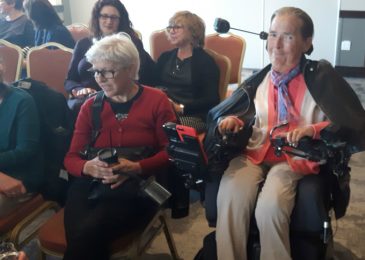Little tangible progress on disability roadmap, deputy minister’s responses at human rights enquiry suggest
Community Services deputy minister Lynn Hartwell testified all day today at the human rights inquiry into the lack of community living options for people living with disabilities. We learned that very little has been accomplished since the department published its disability roadmap some four years ago. She’ll be back at it tomorrow, and so will the NS Advocate.










